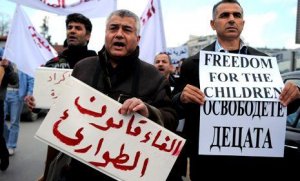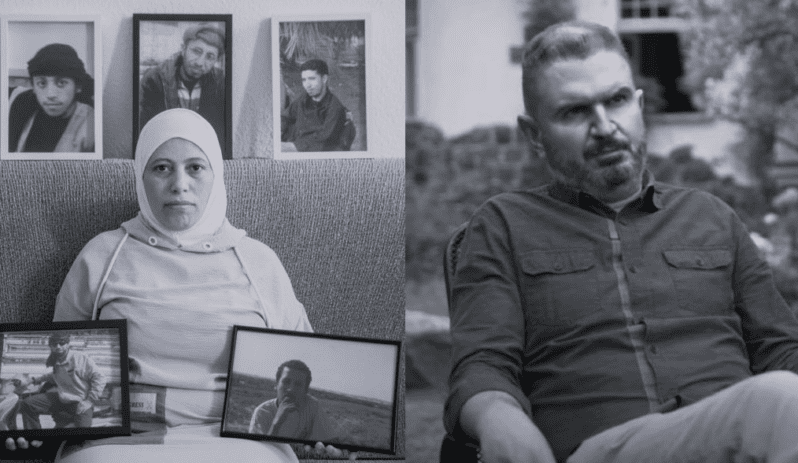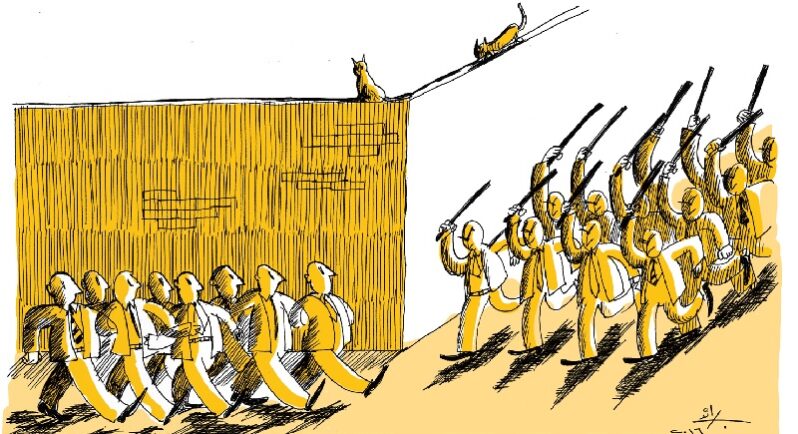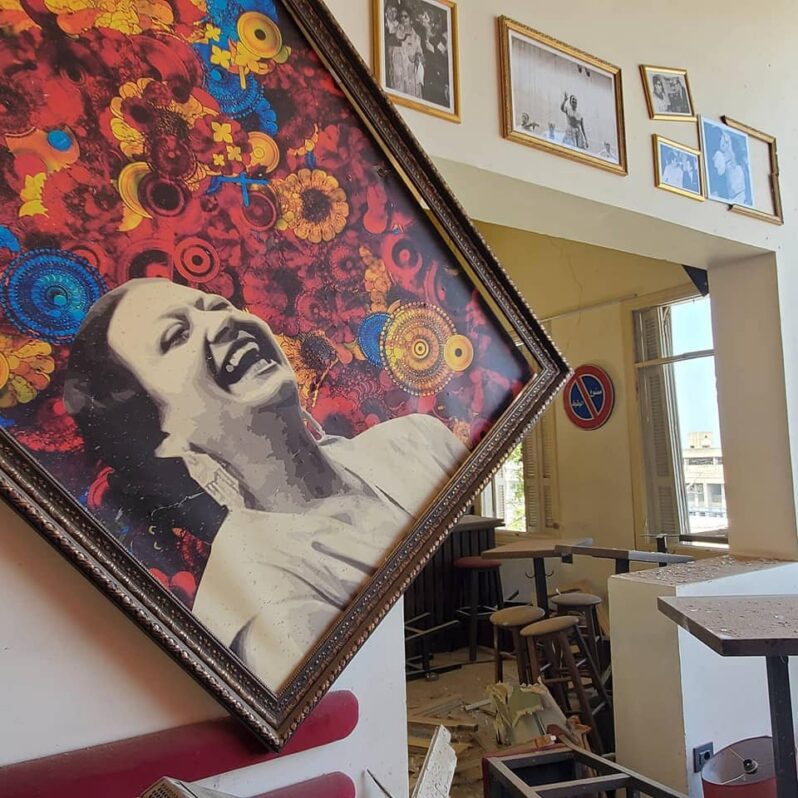The Syrian Regime Legal “Reforms” (II)” State of Emergency as the Trojan Horse of Counter-Terrorism

Over the past several decades, and since the Baath party’s accession to power, the Syrian traditional opposition has tirelessly demanded an end to the various violations of human rights committed under the state of emergency in Syria. The latter was declared by virtue of Military Order No. 2 issued on March 8, 1963 by the National Council for the Revolutionary Command (NCRC). However, some factions within this traditional opposition welcomed the abovementioned decrees, despite them being issued amid random arrests and killings of peaceful demonstrators.
The State of Emergency: Decades of Legal Illegitimacy
Legislative Decree No. 51 of December 1962 (Syrian Emergency Law), allowed the systematic violation of citizens’ basic rights and freedoms which led to a decades-long suspension of constitutional provisions. Under the Emergency Law provisions (Article 3), the martial law governor, appointed by the prime minister, enjoyed, alongside his deputies, extensive powers including the command of internal and external security forces. The governor and his deputies can thereby impose several restrictions on the freedom of movement, association, residence, expression and media.
Article 4 of the same law provides for “the surveillance of all kinds of communications and messages; the pre-publication monitoring of newspapers, bulletins, files, caricatures, printed materials, broadcast stations and all forms of expression, publicity and advertisement (…)”. The said Article also provides for the “seizure of movable and immovable property, temporary wardship over companies and businesses, postponement of due and future debts and liabilities incurred on the seized property”.
Moreover, the martial law governor or his deputy have the authority, without seeking judicial approval, to issue orders of “preventive arrest of suspects or individuals threatening public security and order, to authorize investigations on both people and places at any given time, and to request any task from any person”.
As a result, the ordinary judiciary was disabled and the martial law governor could refer whoever disobeys him to military courts, regardless of the status of the person. Perpetrators of acts considered crimes against state security, public safety or public authority, or prejudicing public trust or constituting a major risk were prone to the same fate (see Article 6).
Within one year of the declaration of the state of emergency, many freedom-restricting laws were promulgated, all mainly aiming to reinforce the exceptional laws and subsequently the Baath’s political power.
The Law for the Protection of the Revolution was adopted by Decree No. 6 of 1964. Under that law, written or verbal opposition to the goals of the revolution and any resistance to the socialist regime was criminalized with penalties reaching life imprisonment or execution in some cases.
The Economic Security Court (ESC) was formed by virtue of Legislative Decree No. 46 on August 8, 1977. Charged with offences based on the Economic Penal Code (EPC), thousands of Syrians were prosecuted under this exceptional court. Some articles of the EPC, such as Article 13 penalizing “resistance to the socialist regime” with up to 15-years imprisonment, are loosely worded and open to interpretation.
Article 9 of the Law on the Security of Arab Socialist Baath party, No. 52 of 1979, decrees a minimum 5 year prison sentence for any act intended to prevent the Baath party from carrying out its functions as stipulated in the constitution and the law. If the act in question is accompanied by any form of violence, the penalty stated is execution.
Exceptional courts had to be reinforced to tighten the control of the new Baath party over the country and ensure total subordination of the judiciary to the executive power. The latter resided with the President of the Republic or his representative, the martial law governor. It was in this vein that the Supreme State Security Court (SSSC), a byproduct of the state of emergency, was established by virtue of Decree 47 of 1968. The first Article of said decree stated that the creation of the court takes place “by order of the martial law governor”, while articles two and three delegated the task of assigning the court’s members and public prosecutor to the President of the Republic.
The SSSC inherited the jurisdiction of the exceptional military court which it replaced, and dealt also with all cases referred to it by the martial law governor or his deputy (see Article 5). Military field courts were also largely common after being put into effect by the promulgation of Legislative Decree No. 109 of 1967. In effect, exceptional judiciary with its exentisve power to prosecute civilians came to replace ordinary judiciary in Syria.
The imposition and implementation of the state of emergency had serious negative effects on Syria. Exceptional legislation and the judiciary were strengthened. Judicial power became subordinate to executive power leading to the unjust sentencing of civil society activists and the incarceration of thousands of prisoners of conscience who were subject to unfair trials. It should also be noted that Syrian legislation and its ordinary judiciary acted and continue to act as a bulwark for the Syrian regime, in all its undertakings under the state of emergency. Ordinary Syrian courts have penalized many politicians and human rights activists citing articles of the Syrian Penal Code, namely, Articles 287 and 286 which respectively penalize the spreading of “false or exaggerated information defaming the State”, or “false news that would weaken the will of the nation”.
It is important to note that the decades-long state of emergency imposed on Syria is unconstitutional and null on several grounds. According to Article 3 of Emergency Law No. 51, the state of emergency is to be declared “by virtue of a decree issued through a cabinet session headed by the President of the Republic, with a quorum of two thirds of cabinet members. The decree should then be referred to Parliament for review in its first following session”. However, the Syrian Parliament did not take part in the adoption of Legislative Decree 51. This constitutes a clear violation of the aforementioned Article.
In addition, the provisions of the emergency laws were in contradiction with many provisions of the 1973 Syrian Constitution. Article 28 of said Constitution stipulated that “every defendant is presumed innocent until proven guilty by a final judicial decision”. Article 32 guaranteed “the privacy of postal and telegraphic contacts”. Article 33 referred to the right of freedom of movement. Article 38 recognized the right of every citizen to freely and openly express his views in words, in writing, and through all other means of expression.
Despite the clear contradiction between the abovementioned constitutional provisions and the substance of the emergency laws, the latter were not excluded by the Syrian judicial apparatus. The judiciary was weakened by its lack of independence and the role of the Constitutional Court was effectively absent.
What further nullifies the emergency laws is their contravention of several international conventions ratified by the Syrian government, such as the International Covenant on Civil and Political Rights (ICCPR). The provisions of ratified international conventions are expected to supercede any national legislation. The predominance of the former is explicitly expressed in Article 27 of the Vienna Convention on the Law of Treaties (VCLT) which states that “a party may not invoke the provisions of its internal law as justification for its failure to perform a treaty”.
To be fair, the ICCPR, ratified by Syria in 1969, does stipulate in Article 4 that “in time of public emergency which threatens the life of the nation and the existence of which is officially proclaimed, the States Parties to the present Covenant may take measures derogating from their obligations under the present Covenant to the extent strictly required by the exigencies of the situation, provided that such measures are not inconsistent with their other obligations under international law”. However, paragraph 2 of the same Article 4 affirms that no derogation from ICCPR provisions on basic human rights may be made under the abovementioned provision on grounds of public emergency.
Therefore, one can fairly say that Syria’s emergency laws contradict Article 4 of the ICCPR for the following two reasons: First, the state of emergency in Syria lasted 49 years, ceasing to be of a temporary nature under which the ICCPR exceptional provision of Article 4 applies; Second, emergency laws provision explicitly violate a number of the basic human rights mentioned in paragraph 2 of Article 4 of the ICCPR.
Reframing State of Emergency with “Counter-Terrorism”
Throughout the past decades, emergency laws and the absence of any form of power rotation under corrupt presidential and parliamentary elections stripped the political system in Syria of any legal or political legitimacy. Calls and demands for the Syrian regime to put an end to such a state, reestablish constitutional legitimacy and promote ordinary judiciary over exceptional judiciary fell on deaf ears. In the wake of several popular uprisings toppling Arab dictatorships, Syrian popular demands increased hopes that Syrian authorities would realize that protests will soon move to Syria, and pointed out that measures need to be taken to absorb the anger of the people and their rightful demands, most notably, the demand to lift the state of emergency.
Not surprisingly, it took the regime almost a whole month of peaceful protests and the loss of many lives to issue a decree lifting the state of emergency. By then, the people were demanding the overthrow of the regime and the prosecution of security officials.
Despite the official lift of the state of emergency, facts on the ground show that the freedom-restricting Emergency Law clauses are still in effect. Surveillance of communications, restriction of freedom of movement, violation of the sanctity of people’s homes, random arrests without warrants, and extrajudicial detention for long periods, all continue to take place in Syria.
Lifting the state of emergency limited the security apparatuses’ power. However, this was circumvented at the legislative level by the promulgation of Decree No. 55. This deree added a clause to Article 17 of the Syrian Code of Criminal Procedure authorizing “judicial police or whom it commissions” (e.g., the security apparatuses), to detain a suspect for up to 60 days. During this time period, the detainee would be isolated from the outside world and as a result, his or her basic rights would be subject to violation.
However, Decree No. 55 was not enough to accommodate the Syrian regime’s authoritarian structure. In order to safeguard the regime’s political control, an arsenal of other repressive decrees were promulgated, varying according to the situation on the ground. Naturally, after the lift of the state of emergency and the abolition of the SSSC, a legislative alternative had to be found that would give the regime equivalent means to strengthen its ruling grip and squash popular opposition.
Such an alternative was provided through the Counter-terrorism Law No. 19 of 2012, which paved the way for the promulgation of a decree establishing the Counter-Terrorism Court (CTC). This court effectively inherited the repressive functions of the abolished SSSC. The regime and its allies had been putting much effort into depicting the battle as one against “armed terrorist groups”. A fierce media campaign was launched within and outside Syria to mobilize public opinion. The chaotic security situation only worsened resulting in the proliferation of armed gangs committing kidnapping and looting. This was exacerbated by the flocking of large numbers of jihadists into Syria with the direct or indirect support of certain regional powers.
It should be pointed out in this context that there is a disagreement among local as well as international circles on the clear definition of terrorism. Terrorism should not be confused with the armed struggle of the people in deciding their destiny or liberating their nation.
Contrary to how the Syrian regime described developments in Syria, the International Committee of the Red Cross (ICRC) referred to the Syrian crisis as an armed conflict emphasizing on the necessity of all parties to abide by International Humanitarian Law (IHL). The situation in Syria requires careful consideration especially with the proliferation of armed groups having divergent views, and the confirmation by UN bodies that crimes against humanity have been committed by the Syrian regime. Said UN bodies include the Human Rights Council, the General Assembly and the Independent International Commission of Inquiry on Syria. Legitimate defense is therefore justifiable and some of the fighters of the armed political opposition cannot be considered terrorists.
In fact, the provisions of Law No. 19, referred to as the “Counter-terrorism Law” by the regime, do not only target perpetrators of terrorist acts, but also all types and forms of the Syrian opposition, whether armed or pacific. This 15-article law uses political terms and vague concepts affecting any person practicing their legitimate political rights.
Article 1 defines terrorism as “any act intended to create public panic, jeopardize public security and damage the state’s bases and infrastructure, by use of weapons, ammunitions, explosives, inflammable material, toxic and incendiary products or biological and bacteriological weapons, or by any other means of any type serving the said purposes”. The phrase “by any other means of any type” could be interpreted in such a way so as to include criticism against the Syrian regime, and therefore penalize freedom of opinion and expression.
Article 2 refers to what the regime has consistently invoked in its attempt to tarnish the popular protest movement, namely, “conspiracy”, without any definition or explanation of said term in any of the law’s clauses. Paragraph 3 of Article 3 explicitly states that the penalty shall be aggravated “if the intention behind forming a terrorist organization was the alteration of the regime of rule or the state’s [institutional] structure”. Article 8 goes even further by penalizing individuals who have no material link to the crime. The article decrees a penalty of temporary hard labor for “any person that distributes printed materials or stored data of any form in order to promote means or acts of terrorism. The same penalty shall apply to anyone who manages or uses a website for said purpose”.
The “Counter-terrorism” Law was followed soon after by other laws and decrees, such as Law No. 20 of 2012. Article 1 of this law stipulates that “any government servant, regardless of the law governing his service, who has been found guilty of any terrorist act by virtue of a [irrevocable] judgment by a court of last resort, whether as perpetrator, instigator, intervenor or accomplice; or having joined a terrorist group or provided any kind of material or moral support to terrorists, shall be dismissed from service and deprived from all retirement rights”.
The term “moral support” used in said Article is very vague, allowing the accusation of anyone who might oppose the regime verbally or in writing. Indeed, the clauses of the “Counter-terrorism Law” have allowed the prosecution of many of the political opposition figures who have never even carried a weapon in their lives. Peaceful demonstrators and workers of the medical and emergency rescue fields were charged with “supporting and financing terrorism”. An exceptional, well politicized and fast-processing court was needed for the thousands of cases piling up. Presidential Decree No. 22 promulgated in July 2012 set up the Counter-terrorism Court. The structure, jurisprudence, operation and procedures of said court will be the subject of the third installment of this series.
This article in an edited translation from Arabic.



